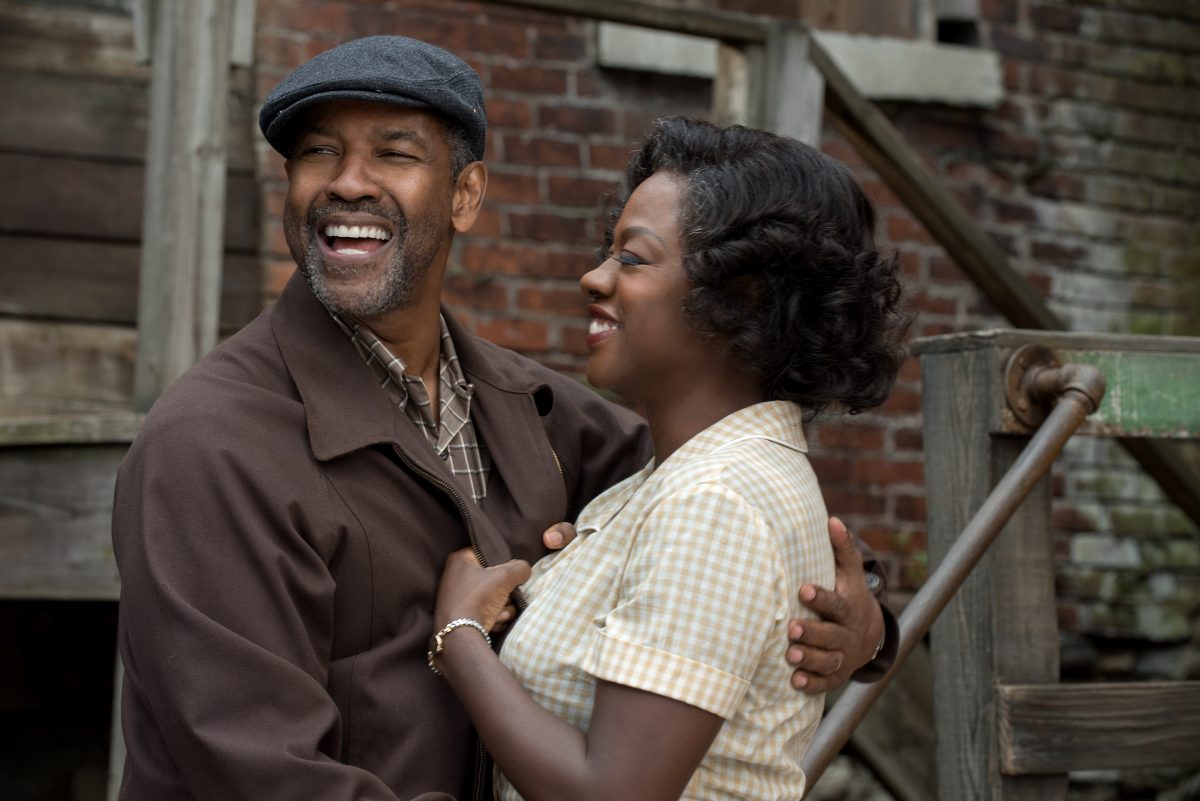 (4 / 5)
(4 / 5)
Denzel Washington is not a man who chooses his projects lightly.
Even a consistent run of by-the-numbers actioners – 2 Guns, The Equalizer, The Magnificent Seven – have, in recent years, served as vehicles for his charm and gravitas; only helping to ensure his elder statesman status.
Still, with half a decade having skipped by since he last troubled the Academy, with 2012’s Flight, Washington could have seemed to have been in danger of falling into Liam Neeson territory.
With Fences, though, his first directorial effort since he made his debut with Antwone Fisher back into 2002, Washington assures us that, if nothing else, he’s still one of the most compelling actors working today.
Adapted from the Pulitzer Prize-winning play by the late August Wilson’s, Fences sees Washington return to the role he played on Broadway back in 2010: that of Troy Maxson; a waste collector, family man, raconteur, in 1950s Pittsburgh.
His house – and Maxson makes abundantly clear it is his house – paid for with a decade and a half of hard graft – is a small, narrow, two-bedroom red-brick, which we see mostly from the backyard. There’s a stoop, a table and a couple of chairs, a stack of boxes; a yard, a tree and a rope, a practice ball tied to it.
It’s a space far more theatrical than cinematic, and it’s here that we get to know Troy, wife Rose (stage and Antwone Fisher costar Viola Davis), freckly work friend Bono (Stephen Henderson), and Cory (Jovan Adepo), Troy’s sulky teenage son by Rose.
Troy’s elder son, Lyons (Russell Hornsby) – whose childhood Troy spent in prison – is a musician by trade and only comes by on Fridays to borrow $10 from Troy’s pay packet. Troy’s pay packet and the graft he puts in to earn it casts a shadow over his relationships with everyone in the Maxson household.
Troy can be gregarious and charming when he puts his mind to it, occupying his spot with energy and humor, but he’s also angry, hectoring; a minor-league tyrant deprived of his major-league dreams by age and circumstance. Washington catches all these contradictions remarkably.
Troy is a man whose sheer tenacity and conviction makes it difficult to argue with. If Willy Loman in Death of a Salesman was a hardworking drummer who, to quote his son Biff, landed in the ashcan, then Troy Maxson is that plus King Lear – minus some of the self-delusion.
The hardship and prejudices Troy faced securing his homestead, not least his brutalizing relationship with his own father, causes him to dismiss Cory’s sporting dreams out of hand. All Rose can do is stand by and watch as Troy’s obstinacy eats away at the already tenuous relationship he has with his younger son.
Troy’s tragedy is that of an inherently noble man consumed by resentment, by the sense of his responsibilities and his disappointments. Rose’s is that she knows it and that no one knows what that costs her. “What about me?!!”, she cries – a cry, one feels, that’s been building within her for many of those years.
It takes a betrayal to awaken Rose from her fugue; to finally put Troy at loggerheads with someone whose own sense of grievance is, righteously, as great as his own. Davis’ performance is less “supporting”, the category in which she’s been nominated, than simply reigned in, so when the floodgates are let loose – a startled blink as her heart breaks – it’s all the more powerful.
Troy’s addlepated older brother Gabriel (Mykelti Williamson), injured in the war, wanders the neighborhood, carrying a broken trumpet and chasing away hell-hounds from the Maxson’s door. That Gabriel’s disability payout is largely responsible for the roof over their heads only adds to Troy’s inner conflict.
There’s a great deal of thematic complexity to Wilson’s play and Washington, wisely, keeps a tight focus on the key players – even if the film for it never quite escapes the feel of a NT Live production – and on that backyard with the fence that might never be finished.
Onstage the fence stands as a demarcation, a barrier between work and home, between yours and mine, between us and Death even; the figurative Grim Reaper who, having supposedly battled in his youth, Troy defiantly challenges to a rematch.
Even if the symbolism isn’t as potent as when under the spotlight, Washington et al ensure the prose packs a punch right up to that last transcendental moment.
